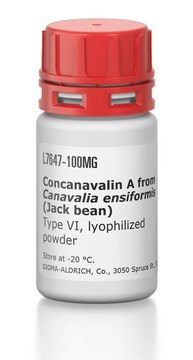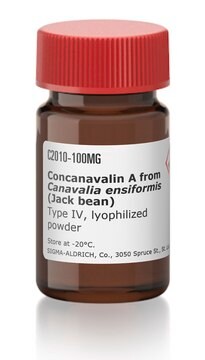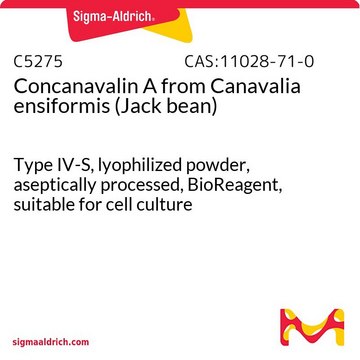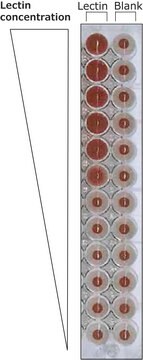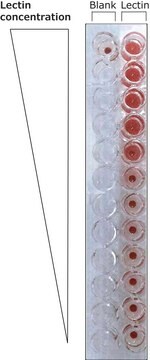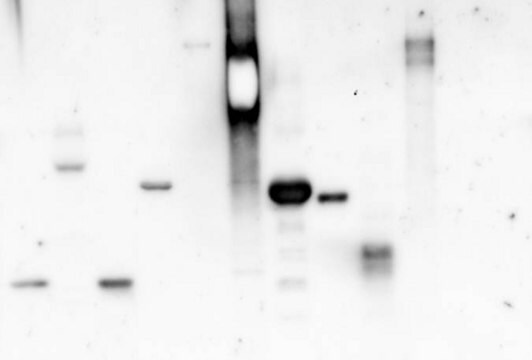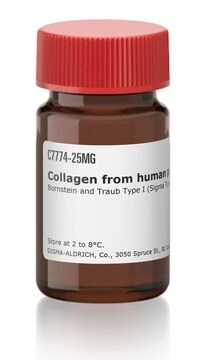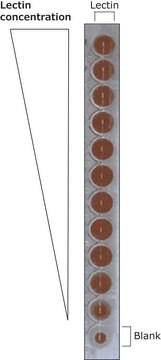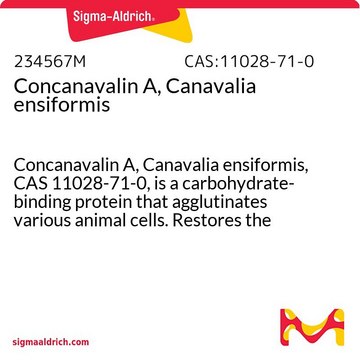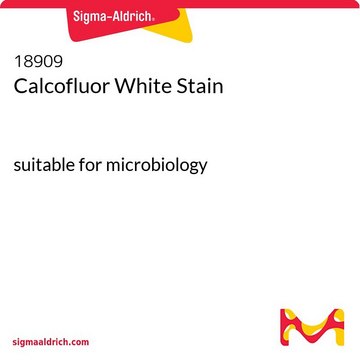C7642
Concanavalin A from Canavalia ensiformis (Jack bean)
FITC conjugate, Type IV, lyophilized powder
Sinónimos:
ConA
About This Item
Productos recomendados
biological source
Canavalia ensiformis
Quality Level
conjugate
FITC conjugate
type
Type IV
form
lyophilized powder
composition
Protein, 5-15% biuret
extent of labeling
3-6 mol FITC per mol protein
impurities
Carbohydrate, essentially free
storage temp.
−20°C
¿Está buscando productos similares? Visita Guía de comparación de productos
Application
Biochem/physiol Actions
Packaging
Physical form
Analysis Note
signalword
Warning
hcodes
pcodes
Hazard Classifications
Skin Sens. 1
Storage Class
13 - Non Combustible Solids
wgk_germany
WGK 3
ppe
dust mask type N95 (US), Eyeshields, Faceshields, Gloves
Certificados de análisis (COA)
Busque Certificados de análisis (COA) introduciendo el número de lote del producto. Los números de lote se encuentran en la etiqueta del producto después de las palabras «Lot» o «Batch»
¿Ya tiene este producto?
Encuentre la documentación para los productos que ha comprado recientemente en la Biblioteca de documentos.
Los clientes también vieron
Nuestro equipo de científicos tiene experiencia en todas las áreas de investigación: Ciencias de la vida, Ciencia de los materiales, Síntesis química, Cromatografía, Analítica y muchas otras.
Póngase en contacto con el Servicio técnico